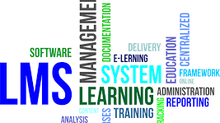Things you should check when developing eLearning courses
- Dylan Hedges
- Feb 2, 2021
- 2 min read
When developing eLearning and digital training there are a number of checks you should do to make sure that your eLearning is consistent, robust and provides a good user experience for learners. Below are some things you should check when developing your next eLearning course.
1. Broken Links
When developing eLearning testing that links work is one of the most important checks you should make. When adding hyperlinks to external resources or within your course a number of things can cause a link to break. For example, if you link to an external web page in your eLearning course, typically this link will contain a variety of words and letters, when copying this link if you miss one of these characters or an incorrect character is added the link will break and no longer work. Similarly, with linking to something in your eLearning course you may accidently link to a wrong page or have missed adding a link when one is needed. Whenever you link to something always test them to make sure they work and go to the correct destination.
2. Navigation
Navigation is another important thing to consider when developing an eLearning course. Navigation in eLearning can be implemented in a variety of ways, it might be as simple as the learner clicking on the Next button or it might require the learner to complete several tasks before they can proceed. Regardless of the type of navigation you use it is important to check it make sure that there are no issues and the learner is able to progress through the course. The reason this is so important is because navigation issues can prevent the learner from taking your eLearning course, if you have an issue with navigation early on your learners might only be able to access a fraction of your course, this will result in them not learning what you are trying to teach them and will result in a bad user experience. To check navigation, click through the course as if you were a learner, take the path you expect learners will take and perform tests to see if you can bypass any of the course navigation.
3. Correct Content
When developing eLearning you will most likely have input on the content of the course from a Subject Matter Expert (SME). A SME is someone who knows the information that goes into the course and works with a developer to create the eLearning course. When developing an eLearning course, it is important to check that all the content included in the course is accurate. This can be done by working closely with the SME, in some cases you will have flexibility to make changes to provide a better user experience for the learner, however, in other cases the content has gone through multiple review processes and there is little flexibility in terms of what you can change. When adding or changing content check with the SME that changes made are still relevant to the course topic and the learning objectives.
#customeLearningdevelopment #eLearningcustomdevelopmentsolutions #torontoelearningcompany #customelearningandtraining #elearningvendortoronto #customelearning #trainingcompanytoronto #torontoelearning #elearning #toronto #elearningcompany #elearningvendor #torontoelearningvendor


































Comments